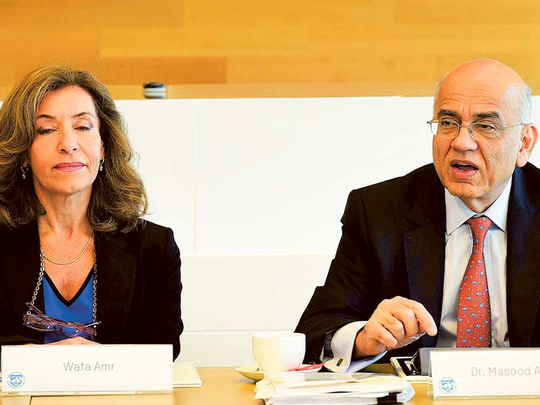
Dubai: Despite recent improvement in oil prices and the adoption of consolidation measures, projected fiscal deficits of GCC countries remain large in both the short and medium term, according to the International Monetary Fund’s latest regional economic outlook.
Taking into account announced fiscal policy measures, all countries are expected to record fiscal deficits this year, and only Iraq, Kuwait, and the UAE are projected to post surpluses by 2021. This year’s hydrocarbon budget revenues are projected to be lower by $400 billion compared with 2014.
Cumulative fiscal deficits during 2016–21 are forecast to be about $765 billion, down from $1.1 trillion in the April 2016. The significant deficit-reduction efforts which began last year are continuing, with the 2016 non-oil fiscal deficit expected to improve by more than 5 per cent of non-oil GDP. Fiscal consolidation is particularly fast in Oman and Saudi Arabia, where non-oil deficits are projected to fall by more than 10 percentage points of non-oil GDP. In 2017, the pace of consolidation is expected to ease to about 1.5 per cent of non-oil GDP.
To help address the large budget deficits, policymakers have adopted a mix of spending cuts and revenue-raising measures.
In particular, they have demonstrated resolve in addressing the politically difficult issue of low domestic fuel prices — all GCC countries, for example, have hiked energy prices over the past couple of years.
Some countries have also started — or are planning — to take measures to rein in the public sector wage bill.
Despite the remarkable progress so far, GCC face increasingly difficult policy choices to achieve the significant medium-term fiscal adjustment their economies still need. Eliminating this year’s budget deficit would demand an average spending cut of 25 per cent.
Non-hydrocarbon revenues have the potential to be increased across GCC countries that continue working toward introducing a value-added tax, having already raised some fees, charges, and excises.
“To reduce any adverse impact on growth, countries should phase in these additional deficit-reduction measures gradually. In addition, they should be embedded in a well-defined, medium-term fiscal framework to ensure steady implementation ,” said Masood Ahmed, Director, Middle East and Central Asia Department of the IMF.
A number of countries are working towards creation of such institutions. Examples include the establishment of macro-fiscal units in Kuwait, Oman, Qatar, and Saudi Arabia, consolidated medium-term expenditure frameworks for health care and education in the UAE, the creation of a debt management and liquidity committee in Oman, and a debt management office in Saudi Arabia, as well as enhancing the capacity of the debt management office in Bahrain.
As fiscal consolidation proceeds, policymakers are likely to face headwinds given the high rigidity of public expenditures — for example, public wages account for more than a third of total spending in a number of oil exporters.












